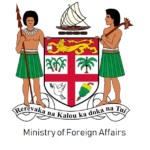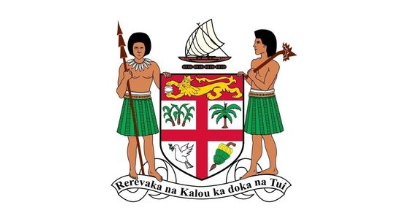
Prime Minister Voreqe Bainimarama’s Speech at the Fiji National Consultation Workshop on 2050 Strategy of the Blue Pacific Continent
28/08/2020
Statement from the Acting Permanent Secretary for Health and Medical Services 04/09/20
04/09/2020Published On: 01/09/2020
Bula Vinaka.
Today we are announcing one new border quarantine case of COVID-19, a 25-year-old female nursing officer. She contracted the virus while treating one of our other border quarantine cases in an isolation unit.
We are considering this case a “border quarantine case” because this nurse never entered a public space after contracting the virus. As per protocol, she worked and lived in the isolation centre, with exactly zero contact with the public. She then entered a Fijian Government quarantine facility –– again, without ever interacting with anyone from the public. After developing symptoms while in quarantine, she was tested. After she returned a positive result for COVID-19, she was admitted to the isolation ward at Nadi Hospital where she is recovering well. In fact, her symptoms have since dissipated.
Her fellow isolation unit nursing colleagues and medical officers on rotation have all returned negative results. Out of an abundance of caution, even though they never interacted directly with this patient, all relevant frontline health, hotel staff and military personnel have been swabbed for the virus and tested negative.
Around the world, rates of infection among healthcare staff are among highest of any group. As nearby as New Zealand, during the month of April, one in ten cases are recorded among healthcare workers. Even when every protocol is followed, even when Personal Protective Gear is employed properly, this unpredictable and unwieldy virus can still be transmitted.
Despite more than 3,000 patients held within our quarantine facilities, this is the first positive case confirmed among our staff working in our isolation facilities. But given what we’ve seen around the world, we are quite sure it won’t be the last. That is why we’ve structured an airtight operation system within our isolation facilities to ensure no risk to the general public –– I’d like to cover again exactly how those facilities function.
Our medical staff work these isolation facilities through a roster system, whereby they work and live in the isolation facility for 14 days, then go into quarantine in one of our government designated quarantine facility for 14 days. They must then register another negative COVID test result before they can rejoin their family. This is the most stringent system of isolation unit management in the world, more rigorous than both Australia and New Zealand.
Our healthcare staff all operate in appropriate personal protective equipment at all times. There is no shortage of these supplies in Fiji and our staff are well-trained in its use. We’re constantly reviewing and strengthening personal protection measures wherever we see an opportunity. However, as I’ve said, some risk will always remain due to the aggressively contagious nature of the virus. That is why we must always remain vigilant.
This will be our 11th border quarantine case. We currently now have two active cases in Lautoka and one in Nadi Hospital.
I know the stringent protocols we have in place are a great comfort to the Fijian people. But we must never forget nor take for granted the exceptional sacrifices these measures demand of our healthcare staff. There is nothing easy about living and working away from your family for four weeks at a time.
There is nothing easy about working to save a life while also mitigating the risk of further infection. And it takes nothing less than absolute bravery to work in our isolation wards. The Fijians who do so are heroes –– full stop.
Our medical staff of orderlies, ward assistants, laboratory technicians, nurses and doctors have together with the members of our security forces (RFMF, Navy and Police) held the frontline since the COVID 19 battle begun. We have as a group have weathered criticism, we have endured hardships, we have seen and experienced social and emotional turmoil, but we will never surrender. We will always honour our duty to our people; to keep them healthy and safe –– and we will do so with vigilance, with courage and with compassion.
We have noted that several recent cases confirmed at the New Zealand border in Christchurch transited through Fiji while travelling from India to New Zealand. We want to assure the public that these individuals did not contract or transmit the virus while in Fiji. These individuals landed in Fiji, spent 30 minutes in Nadi Airport, interacted with no one, and then transited onwards to New Zealand.
Thank you.





